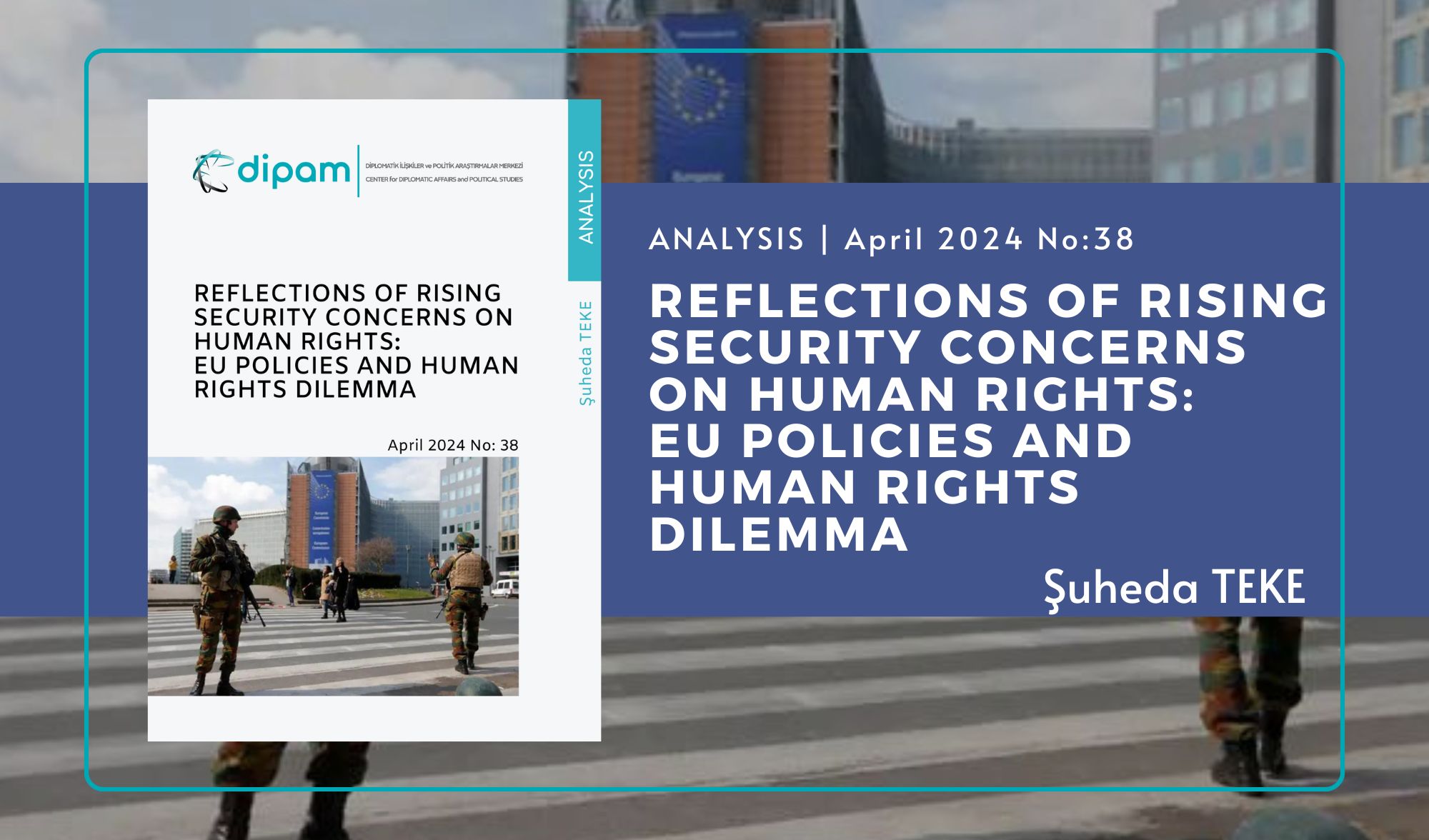Events that happened throughout the history have changed the balance of countries in domestic and foreign politics. Wars, conflicts and disputes are among the main reasons for these changes. Europe, which has witnessed many different wars and conflicts over time, has been one of the geographies where change and transformation were felt the most. Accordingly, states came together to prevent conflicts and disagreements among themselves in the region and aimed to create a union in Europe in line with common values and interests. The European Union (EU), which is the most fundamental source of political, economic and cultural cooperation in Europe today, was shaped in line with these goals and ideals. The European Union, which plays a guiding role with the cooperation it has established within the region in many different areas, has become one of the leading actors in global politics with this position. The EU, which does not limit its work areas regionally, has increased its capacity over time and started to come to the fore on broader issues. It has developed significantly on a global scale thanks to the projects and initiatives carried out in partnership with the United Nations. The EU, which has achieved balance politics within itself, has received intense appreciation from the international public, especially with its support to regional states such as the Middle East and Africa, which are far from balance politics, democracy and political consensus. The EU and its member states, which have achieved this success thanks to the policies they have developed and the foundations they have adopted, have also made great contributions to the development of international law and human rights. However, when the policies implemented by the EU are examined recently, it is noticeable that this positive image, which has been going on for years, has begun to be shaken by the effects of differences of opinion and disagreements within the Union. The Union, which has been dragged into a dead end due to the differences of opinion it encounters within itself, is therefore gradually moving away from its basic goals and policies that it has adopted since its establishment.
The European Parliament, which is the main decision-making body of the EU, the institutions in which every member state has the right to speak and is among the places where differences of opinion are felt most clearly. The main reason for the disagreements within the EU can be considered as the effort of the member states to prioritize their national interests over the interests of the Union. It is possible to classify these interests as economic, political and security. Economic interests are directly proportional to the agreements made between member states and with other countries of the world. Member states, competing for dominance in the European market, shape their own policies in this direction. Member states, which strive to get a greater share of the equally distributed balance of power within the EU as a political interest and aim to increase their influence on Union policies in order to implement their own interests, also strive to remain at the forefront within the EU. Security, another issue of interest, has developed independently of the other two dimensions. The EU, which does not have a common defence policy, is dependent on NATO forces against attacks from outside. This dependence restricts the military movements of member countries, thus increasing security concerns. Member states, which have become vulnerable to external threats due to these security concerns, are working on various policies in local governments to ensure their internal and external security. Security concerns can be examined under three headings which includes the intense wave of immigration to the EU and the problems and difficulties it brings, the homeless problem, which is increasing and poses a threat to internal security due to its impact on the demographic structure, and terrorist acts seen within the borders of the EU. While increasing security concerns are not welcomed by the public in member states, they also directly affect EU policies. For this reason, the security issue is among the current issues that the EU deals within order to build public opinion and voter base in the upcoming EU elections. In this regard, it is noteworthy that various studies are carried out both in local parliaments and in the EU Parliament. With the new policies created, the EU aims to overcome its security concerns while seeking a solution to the crisis of disagreement within itself. Security problems, one of the issues directly discussed in the EU Parliament, are expanding deeper and faster than economic and political problems. For this reason, representatives in the Parliament are carrying out a more meticulous and detailed study on the security issue. In order to explain the background and near future of security problems, discussing the problems under three basic headings will make it possible to have a predictable vision for the near future of the EU.
…




